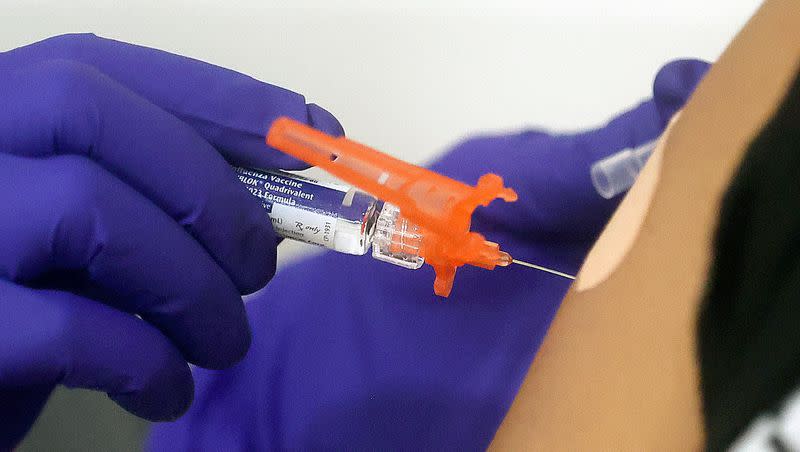2023 fall vaccine guide: Shield yourself and loved ones effectively

As fall is closely approaching, pesky illnesses that often come with colder weather aren’t far behind.
Staying up to date on vaccines can prevent illness and have life-saving health benefits, according to the Centers for Disease Control and Prevention.
“Like a seatbelt in a car, it’s a good idea to keep using it,” Dr. Camille Kotton, a physician at Massachusetts General Hospital and an adviser to the C.D.C., told The New York Times regarding the Covid vaccine.
In order to prevent a tripledemic of the flu, coronavirus and RSV, like Americans faced last year, Dr. Mandy Cohen, director of the CDC, is already taking precautions and suggests others should as well, per NBC News.
“We’re going to have three bugs out there, three viruses: COVID, of course, flu and RSV,” Cohen said. “We need to make sure the American people understand all three and what they can do to protect themselves.”
What are the options for the flu shot in 2023?
The CDC advises anyone above the age of six months or older to get the flu shot with rare exceptions.
Different flu shots are given depending on age. It is deemed most necessary by experts for toddlers, adults over the age of 65 and people with weakened immune systems to receive flu immunization.
While it is still possible to get the flu after receiving a shot, several studies have shown that getting the vaccine reduces the severity of the illness, the CDC said.
The 2023-2024 seasonal flu shot is not yet available but is expected by the beginning of September.
Will there be a new COVID booster in fall 2023?
Along with the flu shot, experts encourage everyone to receive a Covid vaccine for the fall.
The updated booster should be ready towards the end of September and is designed to shield against recent variants.
According to The New York Times, “Updated Covid shots are expected this fall from Pfizer, Moderna and Novavax, and all are designed to target XBB.1.5, the Omicron variant that currently accounts for roughly 12% of cases.”
The updated shots will not be available until they have been authorized by the U.S. Food and Drug Administration and reviewed by the CDC.
“Reasonably at this point, if you’re not high risk and do not have high exposures, waiting a few weeks to get the updated shot should be okay,” Dr. Jennifer Nuzzo, director of the pandemic center at Brown University School of Public Health, told ABC news.
What’s the RSV vaccine for fall 2023?
RSV is most common and, in some cases, life-threatening to young children. “Approximately 1% to 3% of children under 12 months of age in the United States are hospitalized each year due to RSV,” per the FDA.
In July, the FDA approved a new drug called Beyfortus (nirsevimab-alip) to prevent RSV in babies and toddlers.
“This new RSV immunization provides parents with a powerful tool to protect their children against the threat of RSV,” Cohen said in a statement by the CDC. “RSV is the leading cause of hospitalizations for infants and older babies at higher risk and today we have taken an important step to make this life saving product available.”
Related
Nirsevimab is an antibody, not a vaccine, with a long lifespan that has been shown to reduce the risk of hospitalization due to RSV.
The CDC recommends children at eight months of age should be vaccinated against RSV, and the Advisory Committee on Immunization Practices said “Certain infants ages 8 to 19 months get a second dose of nirsevimab to help them through their second RSV season if they have underlying health issues that put them at higher risk for hospitalization,” per CNN.
The CDC also recommended that adults 60 or older should speak with their doctor about getting an RSV vaccine.

